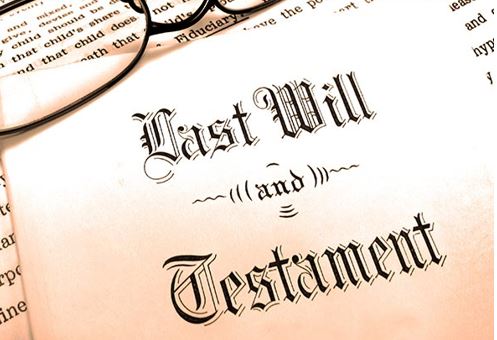
A will is an important legal document that allows you to designate who will inherit your assets and property after your death. It is also a way to appoint a guardian for your children and name an executor of your estate. Preparing your will is important to ensure that your wishes are carried out after your death.
Here are 10 things you need to know when drafting a will:
-
Everyone should have a will.
A will is a document that outlines your wishes for what should happen to your property and assets after you die. It’s important to have a will because it ensures that your property and assets are distributed in accordance with your wishes, rather than according to state law.
Without a will, your property and assets will be distributed according to state law. This may not reflect what you would have wanted, which could lead to family disputes. If there is no will, your property and assets are usually distributed equally between your children or other next of kin. If the deceased person had children from another relationship, that child’s portion may be reduced based on the provisions in the dead person’s will.
-
Everything you own must go through probate court.
If you die without a will, the probate court becomes involved in passing judgment on how your estate is dispersed with regard to any wills you might have signed before death as well as any pre-existing beneficiary designations on accounts or insurance policies.
-
You should consider working with an attorney when drafting your will.
Drafting a will is complicated. An experienced family law attorney can help you through all of the legal intricacies involved in drafting a legally binding document that ensures your wishes are followed upon death.
-
Your estate plan should include a living trust and possibly other documents, too.
Most people create a living trust in addition to their will because it provides an extra level of protection for property they want to pass on after their death. A living trust also helps reduce costs associated with probate, which is the court-supervised process used to transfer property from someone who has died to his or her beneficiaries.
-
You need to name an executor to be in charge of implementing your will.
The person you appoint as executor is responsible for overseeing the administration of your estate after it’s been determined that you’re dead or incapacitated.
You should choose someone you trust to carry out this important role—in many states, the executor is required by law to post a bond (that means they must provide an insurance company with money), which can be expensive.
-
A living will helps communicate your end-of-life wishes.
A living will, also called an advance directive or directive to physicians, lets your family and doctors know about any preferences you have regarding medical care near the end of life. It addresses specific techniques, such as whether or not you want to be resuscitated if your heart stops beating or you stop breathing.
-
You can also use a will to name a guardian for your children.
If you have minor children and you die without a will, the state will appoint a guardian to take care of them. If you’d rather have someone you know and trust take on this important role, you can name a guardian in your will.
-
You can use a will to leave property and assets to charity.
If there’s a charity or nonprofit organization that’s close to your heart, you can leave it property and assets through your will. This is a great way to make sure your legacy lives on well after you’re gone.
-
Dividing property and assets among a will’s beneficiaries can be complex.
In general, the value of your estate is determined by adding up all your assets (e.g., cash in bank accounts, house, vehicles) and then subtracting your debts (mortgage balance, outstanding medical bills). Once you’ve done that, you can divide up your estate as you’d like—you can give some to each person or leave all to one person.
-
Many wills need to be notarized before they’re legal and binding.
If you don’t have a will, your state’s probate court will determine how to distribute your property according to its laws. To be valid in most states, a will must be notarized—that means it has been witnessed and signed by someone authorized by law to administer oaths.
Update Your Will
You should re-evaluate and update your will periodically as life circumstances change and grow more complex over time. No one knows what the future holds, so it’s important to revisit your will periodically and make changes as needed. Marriage, divorce, the birth of children or grandchildren, and even a change in your financial situation can all warrant a review of your will.
When it comes to estate planning, it’s always better to be safe than sorry. “Procrastinating on your estate plan can also lead to a lot of complications and heartache,” says a San Francisco family law attorney from The Geller Firm. Working with an experienced family law attorney is the best way to ensure that you’re taking all the necessary steps to protect yourself and your loved ones in case something happens to you.
Interesting Related Article: “What is estate planning?“

